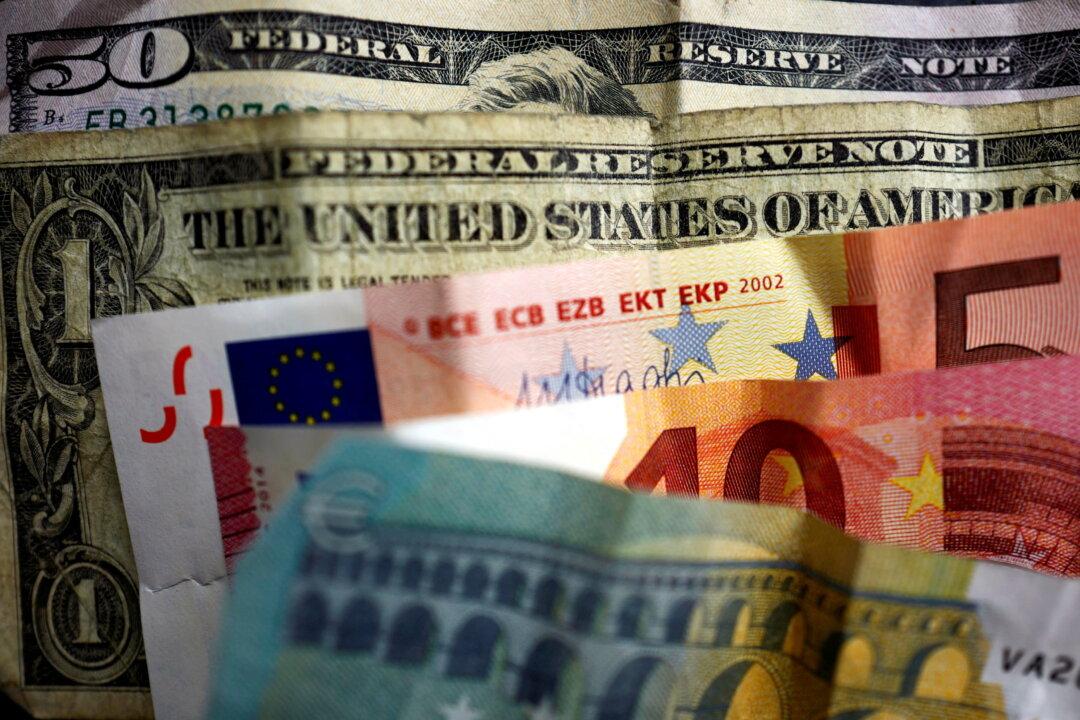SINGAPORE/LONDON—The dollar retreated on Tuesday after rallying the previous day when investors rushed to the safe-haven currency on worries about China’s COVID-19 flare-ups, while fears of fresh contagion from the collapse of crypto exchange FTX pressured bitcoin.
The euro was up 0.3 percent at $1.0265 after an 0.8 percent loss on Monday, sterling rose 0.46 percent to $1.187, partially reversing its 0.6 percent fall, and the dollar was at 141.86 yen, down 0.6 percent after a 1.2 percent gain.





